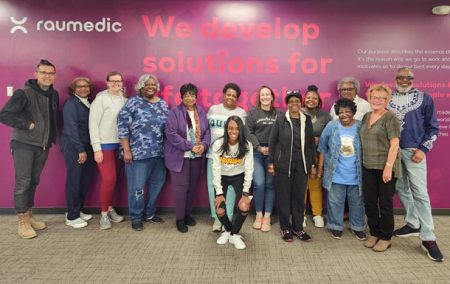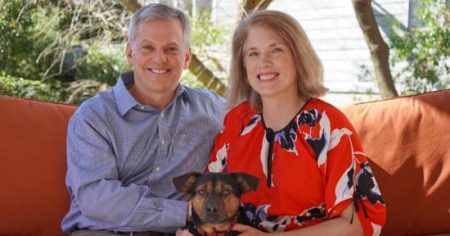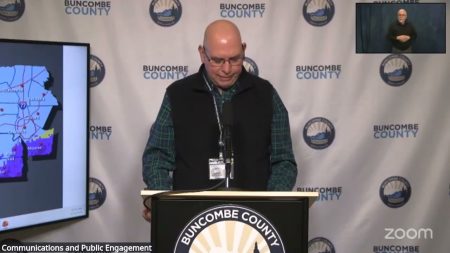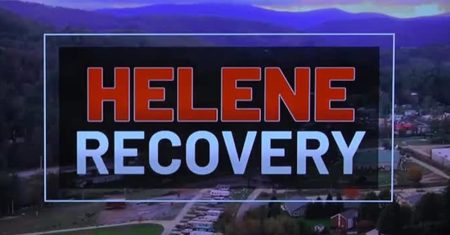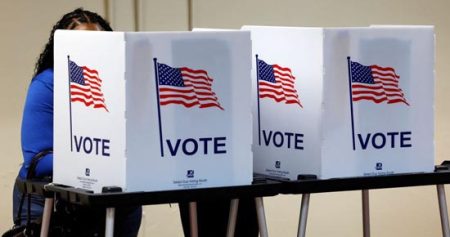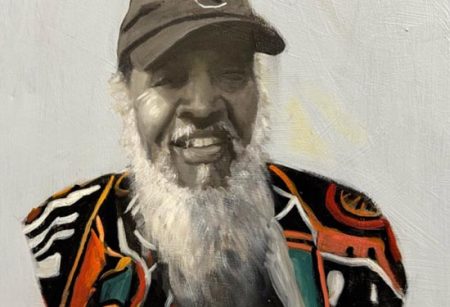Seniors are the Fastest-Growing Population Segment in the United States
by Urban News Staff in collaboration with Annie Butzner
Asheville hosted a “Senior Suffrage” march downtown recently to guarantee older residents their right to vote.

in order to include more help and services for older citizens. Photo: Urban News
Unfortunately, what used to be an easy process no longer is for many of our seniors and disabled citizens. Many residents no longer enjoy access to the polls without overcoming deliberate hurdles and politically derived restrictions.
Why restrict voting?
These restrictions are especially egregious because of the growing numbers of older citizens who will be affected by them. Since 2010, tens of millions of baby boomers have reached 65—a virtual tidal wave of older persons. Seniors currently make up almost one-eighth of the U.S. population, a ratio that will double by 2030. In Buncombe County 48% of the population is over 60, and 25% (60,000 residents) over 65. The state has more than 1.7 million citizens 65 and older, numbers predicted to increase by 193% within eight years.
So why, as their numbers continue to grow, should seniors be losing their political clout? In part, it’s because between 2008 and 2010 there was a 35% drop-off in voter turnout. More crucially, 2010 was a census year, so it also became a redistricting year. Knowing that seniors are more likely than any other demographic to vote regularly, the wave of Republicans who took office in 2011 made deliberate choices about who should enjoy easy ballot access—and who should not—for the next ten years.
Imaginary voter fraud
So in 2013 the NC General Assembly passed its notorious Voter ID law, justified by political assertions of “rampant voter fraud.” Those overblown fears were based on the “Crosscheck” system created by Kansas Secretary of State Kris Kobach, who claimed it would help states identify fraudulent voters across jurisdictions.
NC legislators, promoting voter fraud hysteria, claimed the system had found 35,750 fraudulent votes in North Carolina, based on people with the same first and last names and the same date of birth; that 35,000 was later reduced to 765, and then to zero after the law was passed.
It turned out that Kobach’s system, which had scoured 84,000,000 voter names in an attempt to find people who voted in more than one state, had actually discovered a total of 14 people, in 28 states, who were referred for prosecution. Of those 14, not a single one was ever identified as leading to a conviction for voter fraud. Not one.
According to Dr. George Peery, (retired) Professor of Political Science at Mars Hill University, “In passing this bill, NC enacted several roll-backs that especially targeted African American, younger, and first-time voters. Most importantly, the number of “Early voting days” when voters could register to vote before “Election Day” were reduced; Sunday voting—which many church goers had used to cast their ballots—was eliminated; and restrictions were set in place that made it significantly more difficult for young voters to register.
Adding to these reductions in voter opportunity, the NC state legislature added the “photo id” requirement that disproportionately disenfranchised people who did not own cars (and thus did not necessarily own a drivers license), and others whose circumstances made birth certificate location difficult,” said Dr. Peery.
“Opponents of these provisions called them ‘the new poll tax,’ likening them to a return of the elaborate mechanisms that prohibited African Americans from voting in the Jim Crow Era,” concluded Dr. Peery.
NC’s law and elders
Nevertheless, in their 2013 bill, legislators in Raleigh imposed special voting rules for residents of assisted living, nursing homes, adult-care, group homes, family homes, and hospitals.
Among the restrictions is that only an approved family member or Board of Elections team may assist a person with their ballot; it’s now a felony for a neighbor or friend to help. Also, these new rules are not advertised; information is available only on State Board of Election documents, as the law does not mandate that the information be linked to or displayed on County Board of Elections sites.
Under state law, Board of Elections teams may visit healthcare facilities to register voters or distribute and collect absentee ballots only by request. Many residents do not know about their right to request a visit, so the burden of asking the BOE to visit falls on the facility’s owner—which has little or no incentive to do so. While refusing residents the right to register or ask for ballot assistance is illegal, neglecting to request BOE help does not violate any law. And if a resident asks for help and is refused, that citizen’s only remedy is to complain to the Department of Justice—not the BOE.
Also, not even the most enlightened, progressive, and active Board of Elections can require a facility to participate if it doesn’t request support—because the law was written to be purposely weak.
More barriers, one solution
Besides lack of voting access in care facilities, other barriers to the ballot include: poor eyesight (93% of people over 75 need prescriptive lenses, but Medicaid does not pay for glasses); confusing instructions on forms; lack of public transit to polling places; fewer polling locations; frequently changing voter ID laws; undereducated DMV clerks; and lack of information and even deliberate misinformation provided by the state to certain groups of voters.
Senior Suffrage is the voice empowering seniors and disabled citizens to express their political choices for themselves, their families, and their community through the ballot. In January State Senator Joe Sam Queen plans to introduce a new bill to eliminate barriers; it will be just the beginning of new laws designed to benefit all citizens.
Senior Suffrage calls for direct action by legislators on voting, civil, transportation rights as well as livable healthcare and Medicaid expansion. Another Senior Suffrage March is scheduled for early September.
Some startling statistics about our aging population
Aging baby boomers have already begun to impact the geriatric health and long-term care system. Major health insurance providers are currently imposing large increases in annual premiums in anticipation of escalating utilization rates due to the influx of the baby boomers.
Senior and disabled citizens must vote! Why? “Out of sight, out of mind” translates into gross injustices towards the aged. Voting is the only vehicle for preventing and correcting injustice. Without seniors voting there is no voice for change. That, unfortunately, has been the NC General Assembly’s plan; only by voting can the electorate make real, lasting changes.

